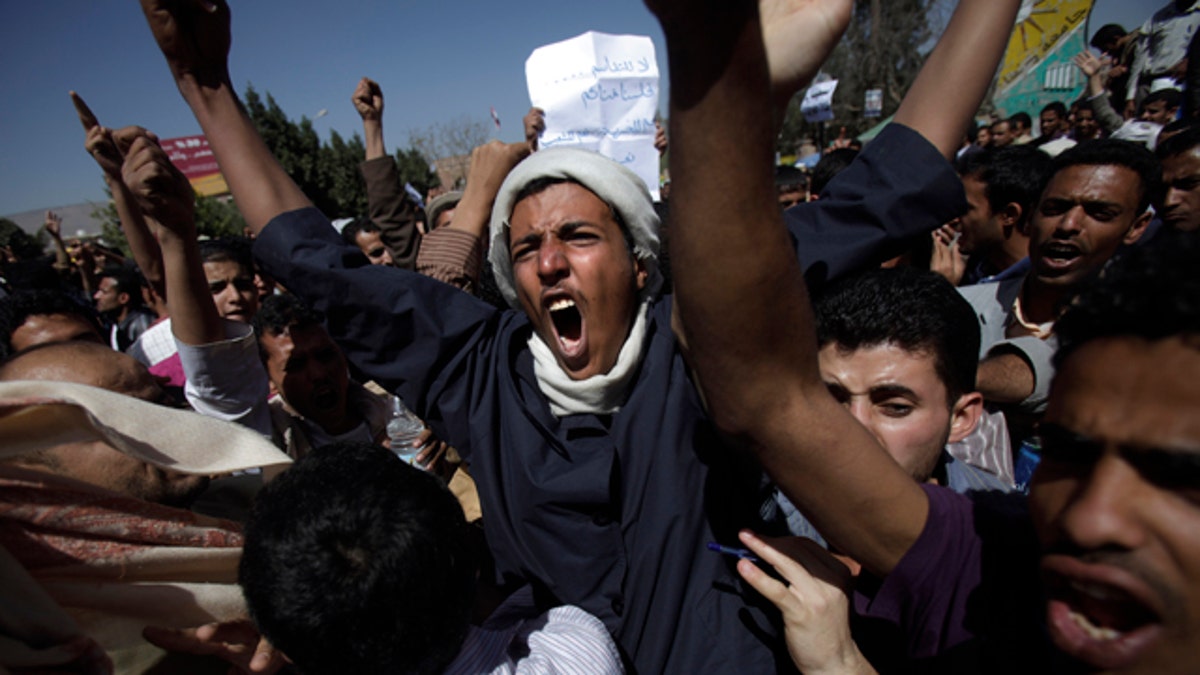
Feb. 19: Yemeni anti-government demonstrators shout slogans during a demonstration demanding the resignation of President Ali Abdullah Saleh, in Sanaa, Yemen. (AP)
SANAA, Yemen – Yemeni riot police in the capital shot dead a protester and injured five others on Saturday when they opened fire on thousands marching in the 10th day of unrest rocking the country.
Protesters began marching early in the morning from the University of Sanaa to the Ministry of Justice while chanting, "the people want the fall of the regime," until they were met by riot police and supporters of the president.
The president's supporters armed with clubs and knives attacked the crowd and engaged in a stone throwing battle while at one point police fired in the air to disperse the march.
A medical official said one man was shot in the neck and killed. He spoke on condition of anonymity because he was not authorized to speak to the press.
The capital became quiet later in the afternoon, however, during the period Yemenis traditional chew a popular stimulant leaf, known as qat. Students, however, had issued calls to gather at the university in the evening.
It was the 10th straight day of protests in Yemen inspired by uprisings in Egypt and Tunisia, which have killed seven people across the country. Demonstrators are calling for the ouster of President Ali Abdullah Saleh -- a key U.S. ally in fighting al-Qaida terrorists -- who has ruled the country for 32 years.
Meanwhile residents of Yemen's port city Aden, where fierce riots have resulted in at least four deaths, said security forces have disappeared from the streets, threatening to plunge the city into chaos.
Residents say groups of men are looting and burning government buildings and there is no sign of police or armed forces.
Saleh is already facing a restless population, with threats from al-Qaida militants who want to oust him, a southern secessionist movement and a sporadic armed rebellion in the north.
To try to quell the new outbursts of dissent, Saleh pledged to meet some of the protesters' demands and has reached out to tribal chiefs, who are a major base of support for him.
But a key chief from Saleh's own tribe was critical of his policies and threatened to join the protesters -- an apparent attempt to pressure the embattled leader of the world's poorest Arab country.
For now, most of the protesters are students, educated professionals and activists who used social media sites Facebook and Twitter in summoning people to the streets.
